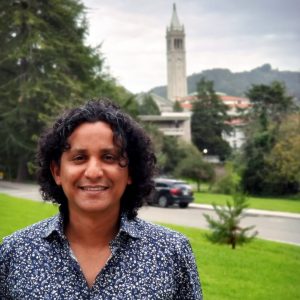My research investigates how underrepresented students in Science, Technology, Engineering, and Mathematic (STEM) might better negotiate their academic identities within oppressive social systems (for example, “Girls are bad at math“). I am interested in designing means, as informed by the theory of embodied cognition, by which underrepresented students in STEM might come to know their authentic selves, while strengthening confidence in personal truths and increasing agency to transform their world.
My work suggests that many promising students who would otherwise excel, remove themselves from STEM fields not because of their lack of intellectual ability, but due to unpleasant physiological responses they experience while engaging in STEM. I present undesirable somatic markers such as a tightening of the throat, a pounding heartbeat or sweaty palms as renderings of embodied cognition. A body-based approach to self-therapy known as focusing is known to mitigate such negative bodily effects over time, allowing practitioners to form new, healthy relationships with previously contentious matters. I am using micro-phenomenology as a means to capture insights into practitioners’ experiential effects of focusing.
I use PowerDiary for my research.
About me:
My passions fall into two broad categories: helping people, and solving problems; especially those “impossible” problems that many think are too big to tackle.
I suppose you can say I take the carpe diem approach to STEM Ed because there’s a high level of urgency that fuels my drive. The way I see it, the cure for cancer could very well be trapped in the mind of a child right now, but if that child belongs to an underserved community, then chances are that knowledge will never mature to the point of serving humanity.
As responsible academics and researchers we need to do everything we can to help all children gain access to high quality STEM Ed in a safe and empowering way that increases their STEM influence.
As the ancient saying goes: If you want your flowers to blossom, then create an environment that enables blossoming to occur. Children already have the answers to solve humanity’s greatest problems within them, we simply need to provide a learning environment that offers healthy academic development.
Email: darryl.diptee at berkeley dot edu
Experience
- BS in Computer Science (Math minor)
- MS in Aeronautical Space Science
- Military Cybersecurity Expert – Navy Lieutenant (20 years service)

Comment to “Darryl Diptee”